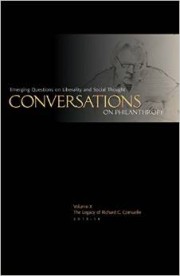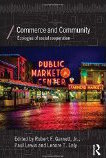Would you rather have the poor poorer?
James Bartholomew’s recent post raises interesting questions on our selective use of comparative analysis and the need always to ask, “compared to what?” Prime Minister Thatcher, may she rest in peace, brought the point home in her final, joyous, appearance in Parliament as PM. When her questioner asked about the growing gap between the wealthiest and the richest Britons, she quickly responded that “all levels of income are higher.” It was a masterful rhetorical jab, but also an essential philosophical point: Shall we compare the poor to the rich or to their own state of affairs at times X and Y?
Bartholomew poses a similar question in thinking about the failures of welfare states. Admitting that the old voluntary welfare system of private charity often did not always even help the deserving poor, Bartholomew nevertheless suggests that compared to the outcomes of public charity, it is quite likely that people would be better off had we had more confidence in the dynamism and responsiveness of private charity. We miss the point if we merely focus on the persistent wage gap that may simply be a feature of market societies without asking, compared to what?
Failing to consistently and rigorously ask, compared to what?, allows us to drift toward what Thomas Sowell has referred to as the quest for cosmic justice. I am not saying that ideas must constantly give way to gritty materialism, nor that humans should eschew dreaming. But it is important for our imaginations to remain tethered to the realm of the possible, especially when we seek to use the tools of governmental taxation and regulation to achieve our ends. When we envision perfect welfare, we must ask, compared to what? Sowell observes:
Presumably, the vast ranges of undeserved inequalities found everywhere are the fault of “society” and so the redressing of those inequalities is called social justice, going beyond the traditional justice of presenting each individual with the same rules and standards. However, even those who argue this way often recognize that some undeserved inequalities may arise from cultural differences, family genes, or from historical confluences of events not controlled by anybody or by any given society at any given time. For example, there was no way that Pee Wee Reese was going to hit as many home runs as Mark McGwire, or Shirley Temple run as fast as Jesse Owens. There was no way that Scandinavians or Polynesians were going to know as much about camels as the Bedouins of the Sahara– and no way that these Bedouins were going to know as much about fishing as the Scandinavians or Polynesians.
In a sense, proponents of “social justice” are unduly modest. What they are seeking to correct are not merely the deficiencies of society, but of the cosmos. What they call social justice encompasses far more than any given society is causally responsible for. Crusaders for social justice seek to correct not merely the sins of man but the oversights of God or the accidents of history. What they are really seeking is a universe tailor-made to their vision of equality. They are seeking cosmic justice.
How fast could Jesse Owens run? Compared to what?
How cute was Shirley Temple? Compared to what?
How powerful was Mark McGwire’s swing? Compared to what?
How fair is the market process? Compared to what?
How successful was private charity? Compared to what?
What is the best use of my philanthropic dollar? Compared to what?
How poor are the poor today? Compared to what?
As Lady Thatcher so readily grasped, the politics of envy is apt to arise when we are encouraged to compare our welfare under the relative income hypothesis. The rhetorical sway of the Wage Gap does just this. We need instead a politics that expands contestability in both commercial and welfare markets, and thus we need to use political rhetoric that expands our sentiments of accomplishment, and, yes, even gratitude… in which we come to appreciate the vast material improvements we enjoy compared even to our grandparents, but we understand that progress is never guaranteed and relies on the continuing dynamic search for marginal improvements that depends on local knowledge and a culture of inquiry and discovery. None of us want the poor to be poorer, but let’s remember to ask, as Bartholomew does, compared to what?, lest we crush the dynamism of a constitutional market order with our own utopian and impossible visions that could be attained and held on to in the real world only by violence to human bodies, minds, and souls.




